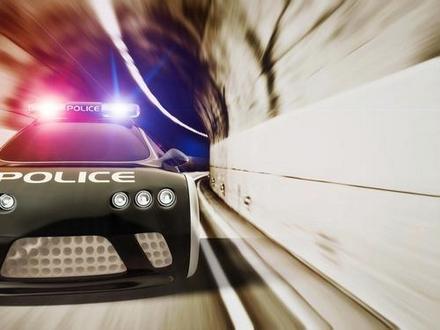Defending an Aggravated Fleeing and Eluding Charge
Posted on March 06, 2015 in Criminal Defense
 When a law enforcement officer orders an individual to stop, most people follow the command without hesitation or conflict. However, the situation sometimes arises where a person attempts to leave the scene of the attempted stop, either with purposeful intent or out of an innocent misunderstanding. Regardless of the reasoning, a conviction under this charge can carry significant consequences, making a viable defense extremely important. An experienced attorney can help you put forth that viable defense.
When a law enforcement officer orders an individual to stop, most people follow the command without hesitation or conflict. However, the situation sometimes arises where a person attempts to leave the scene of the attempted stop, either with purposeful intent or out of an innocent misunderstanding. Regardless of the reasoning, a conviction under this charge can carry significant consequences, making a viable defense extremely important. An experienced attorney can help you put forth that viable defense.
Under Illinois state law, an individual commits the crime of
fleeing and eluding if:
-
The party was the driver or operator of a motor vehicle;
-
The law enforcement officer gives a visual or audible signal to the individual; and
-
The individual attempts to flee or elude the officer.
Each of these elements is necessary to prove the offense. Therefore, a person traveling on foot cannot commit this offense, nor can the passenger in a vehicle that attempts to elude.
Aggravated Charges
While the mere attempt to leave is punishable under this statute, the offense rises to the level of aggravated fleeing and eluding if one of the following circumstances occur:
-
When leaving, the driver operates the vehicle at a rate of speed at least 21 miles per hour over the legal speed limit;
-
During the attempt to flee, the driver causes bodily injury to any person or $300 in damage to property;
-
The attempt to flee involves disobedience of two or more official traffic devices; or
-
The attempt to flee involves the concealment or altering of the vehicle's license plate.
The first conviction of aggravated fleeing and eluding is classified as a Class 4 felony. It carries a possible punishment of one to three years in prison. The convicted party's license may also be revoked. Any additional convictions are classified as Class 3 felonies, with possible punishments of two to five years imprisonment and mandatory revocation of the operating license. Another possible result of a conviction is the seizure and forfeiture of the motor vehicle used to elude.
Defending an Eluding Charge
These consequences are significant and require the defendant to put forth a defense to the allegations. The assistance of an experienced attorney is vital to accomplishing this goal. Fleeing and eluding was once a difficult crime to prosecute, because it generally came down to the word of the officer against the word of the accused. Defendants were able to question the identification of their car or whether the officer adequately signaled.
The situation is quite different today, due to the widespread usage of cameras on law enforcement vehicles. Officers are sometimes able to capture the entire event on video, including the signal given and license plate of the car, as well as the actual attempt to flee. However, just as this evidence can support the conviction, it may also support an acquittal, especially if it provides information that counters the officer's account of events. For this reason, it is vital to complete an adequate discovery and view all records of the event.
If you or a loved one has been charged with aggravated fleeing and eluding, allow criminal defense attorney Hal M. Garfinkel to provide you with a vigorous defense. Contact an experienced
Illinois criminal defense attorney at the Law Offices of Hal M. Garfinkel LLC, Chicago Criminal Defense Attorney today at
312-629-0669 for a
free consultation.
 When a law enforcement officer orders an individual to stop, most people follow the command without hesitation or conflict. However, the situation sometimes arises where a person attempts to leave the scene of the attempted stop, either with purposeful intent or out of an innocent misunderstanding. Regardless of the reasoning, a conviction under this charge can carry significant consequences, making a viable defense extremely important. An experienced attorney can help you put forth that viable defense.
When a law enforcement officer orders an individual to stop, most people follow the command without hesitation or conflict. However, the situation sometimes arises where a person attempts to leave the scene of the attempted stop, either with purposeful intent or out of an innocent misunderstanding. Regardless of the reasoning, a conviction under this charge can carry significant consequences, making a viable defense extremely important. An experienced attorney can help you put forth that viable defense.



